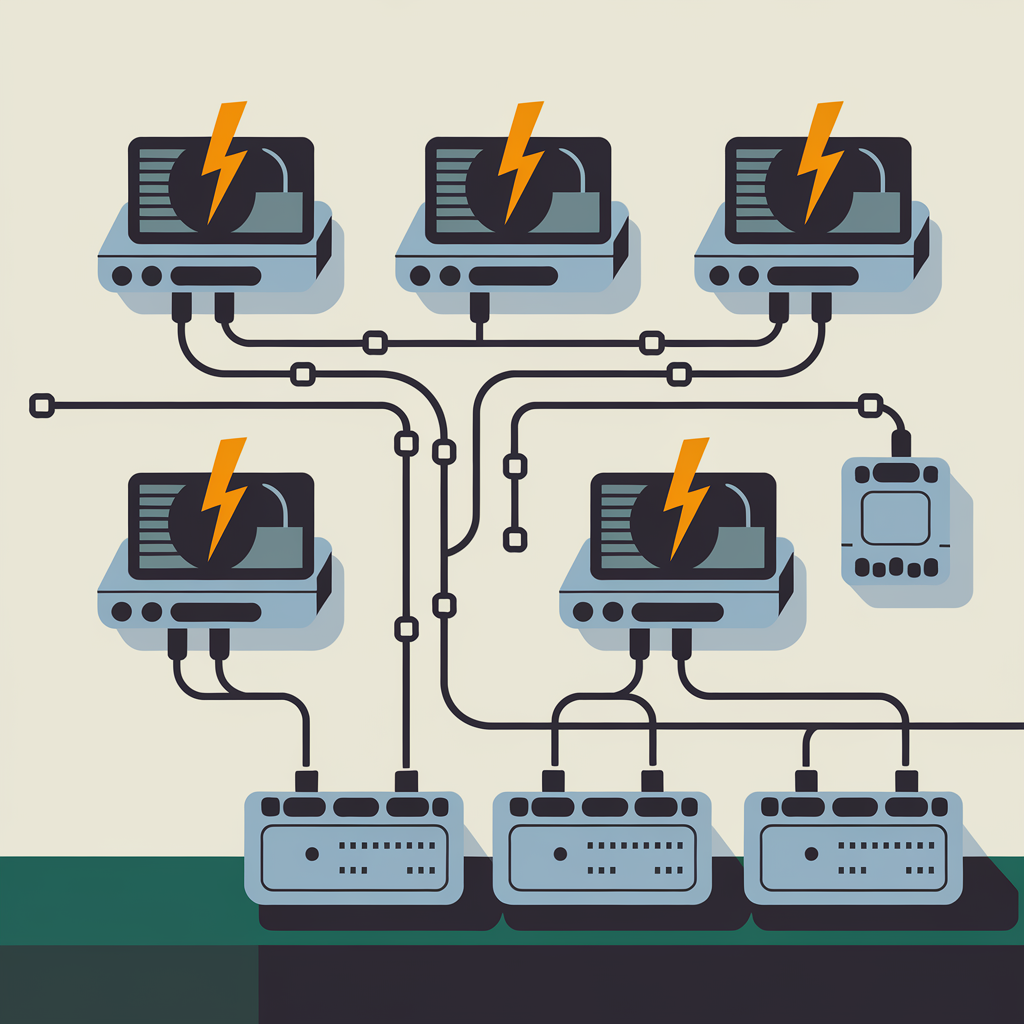In today’s digital world, cybersecurity has become more critical than ever. As organizations of all sizes face increasing threats from cyberattacks, there is a growing demand for skilled cybersecurity professionals. For computer science graduates, this presents a wealth of opportunities. With a solid foundation in technology, programming, and problem-solving, they are well-equipped to transition into the cybersecurity field. In this article, we’ll explore various cybersecurity roles that computer science graduates can pursue, delving into their responsibilities, required skills, and career paths.
Why Cybersecurity Is a Great Career Choice for Computer Science Graduates
With cyber threats becoming more sophisticated, the demand for cybersecurity professionals is skyrocketing. This surge creates numerous career opportunities for computer science graduates. If you’re looking to apply your technical skills in a rapidly evolving industry, cybersecurity could be the perfect fit.
Skills Computer Science Graduates Bring to Cybersecurity
Programming and Scripting Skills
One of the most valuable assets a computer science graduate can bring to cybersecurity is proficiency in programming languages such as Python, Java, C++, and scripting tools like Bash. These skills are crucial for developing security solutions, automating tasks, and even identifying vulnerabilities in systems.
Problem-Solving Abilities
Computer science graduates are trained to think logically and solve complex problems. These critical thinking skills are essential in cybersecurity, where professionals must quickly identify and mitigate potential threats.
Cybersecurity Roles Overview
Let’s dive into some exciting cybersecurity roles that computer science graduates can pursue:
1. Information Security Analyst
Role Overview
An Information Security Analyst is responsible for protecting an organization’s computer systems and networks. They implement security measures to safeguard against cyber threats.
Key Responsibilities
- Monitoring security breaches and incidents.
- Conducting vulnerability assessments.
- Developing security protocols and best practices.
Required Skills
- Knowledge of firewalls, VPNs, and IDS/IPS.
- Experience with security monitoring tools.
- Strong analytical and troubleshooting abilities.
2. Cybersecurity Consultant
Role Overview
Cybersecurity Consultants provide expert advice to organizations on how to protect their information assets. This role often involves conducting security assessments and recommending solutions.
Key Responsibilities
- Analyzing potential security risks.
- Designing and implementing security strategies.
- Educating clients on cybersecurity best practices.
Required Skills
- Excellent communication and presentation skills.
- Familiarity with compliance standards like GDPR and HIPAA.
- Ability to think like a hacker to anticipate threats.
3. Penetration Tester (Ethical Hacker)
Role Overview
Also known as ethical hackers, Penetration Testers assess security systems by attempting to exploit vulnerabilities in a controlled manner.
Key Responsibilities
- Performing penetration testing on networks and applications.
- Identifying security gaps and providing remediation advice.
- Writing detailed reports on findings.
Required Skills
- Expertise in penetration testing tools like Metasploit and Burp Suite.
- Understanding of network protocols and operating systems.
- Ability to think creatively to uncover hidden vulnerabilities.
4. Security Software Developer
Role Overview
Security Software Developers create applications that protect systems from cyber threats. They focus on integrating security into the software development lifecycle.
Key Responsibilities
- Writing secure code to prevent vulnerabilities.
- Conducting code reviews and security audits.
- Developing security patches and updates.
Required Skills
- Strong programming knowledge (C, C++, Python).
- Understanding of secure coding practices.
- Familiarity with OWASP guidelines.
5. Network Security Engineer
Role Overview
Network Security Engineers are tasked with protecting an organization’s network infrastructure from attacks.
Key Responsibilities
- Configuring firewalls and intrusion detection systems.
- Monitoring network traffic for suspicious activity.
- Implementing network security policies.
Required Skills
- Proficiency in network protocols (TCP/IP, DNS).
- Experience with network security tools (Wireshark, Snort).
- Strong problem-solving skills.
6. Incident Response Specialist
Role Overview
Incident Response Specialists are the first responders to cyberattacks, tasked with minimizing damage and recovering from incidents.
Key Responsibilities
- Investigating security breaches.
- Containing and eradicating threats.
- Developing incident response plans.
Required Skills
- Strong analytical and forensics skills.
- Ability to work under pressure.
- Knowledge of digital forensics tools.
7. Cloud Security Engineer
Role Overview
With the rise of cloud computing, Cloud Security Engineers focus on securing cloud environments like AWS, Azure, and Google Cloud.
Key Responsibilities
- Designing secure cloud architectures.
- Managing cloud access controls.
- Implementing encryption for data protection.
Required Skills
- Knowledge of cloud platforms (AWS, Azure).
- Understanding of cloud security frameworks.
- Strong DevOps skills.
8. Cryptographer
Role Overview
Cryptographers develop encryption algorithms to secure sensitive data. This role is crucial in ensuring data confidentiality.
Key Responsibilities
- Designing cryptographic protocols.
- Analyzing and breaking existing cryptographic systems.
- Ensuring data integrity.
Required Skills
- Advanced mathematics and algorithm knowledge.
- Understanding of cryptographic standards (AES, RSA).
- Strong analytical skills.
9. Security Auditor
Role Overview
Security Auditors evaluate the effectiveness of an organization’s security policies and procedures.
Key Responsibilities
- Conducting security audits and assessments.
- Ensuring compliance with regulatory standards.
- Identifying areas for improvement.
Required Skills
- Familiarity with compliance frameworks (ISO 27001, NIST).
- Strong analytical and documentation skills.
- Attention to detail.
10. Chief Information Security Officer (CISO)
Role Overview
The CISO is a senior executive responsible for overseeing the entire security strategy of an organization.
Key Responsibilities
- Developing and implementing security policies.
- Managing the cybersecurity team.
- Reporting on security risks to the board.
Required Skills
- Strong leadership and communication skills.
- Extensive experience in cybersecurity management.
- Strategic thinking and risk management abilities.
Conclusion
As a computer science graduate, the field of cybersecurity offers a diverse range of career paths. Whether you’re interested in ethical hacking, software development, or cloud security, there’s a role that fits your skills and passions. With the demand for cybersecurity professionals on the rise, now is the perfect time to explore this exciting and rewarding industry.
FAQs
- What is the highest-paying cybersecurity role?
The Chief Information Security Officer (CISO) is typically one of the highest-paying roles in cybersecurity due to its seniority and level of responsibility. - Do I need certifications to get into cybersecurity?
While not mandatory, certifications like CISSP, CEH, and CompTIA Security+ can enhance your credibility and job prospects. - Can I switch to cybersecurity from another IT field?
Absolutely! Many skills from IT, such as networking and software development, are transferable to cybersecurity. - Is cybersecurity a good career for the future?
Yes, cybersecurity is a rapidly growing field with high demand for skilled professionals, making it a promising career path. - What programming languages are useful in cybersecurity?
Languages like Python, Java, and C++ are highly useful for various cybersecurity tasks, including automation and vulnerability assessments.




